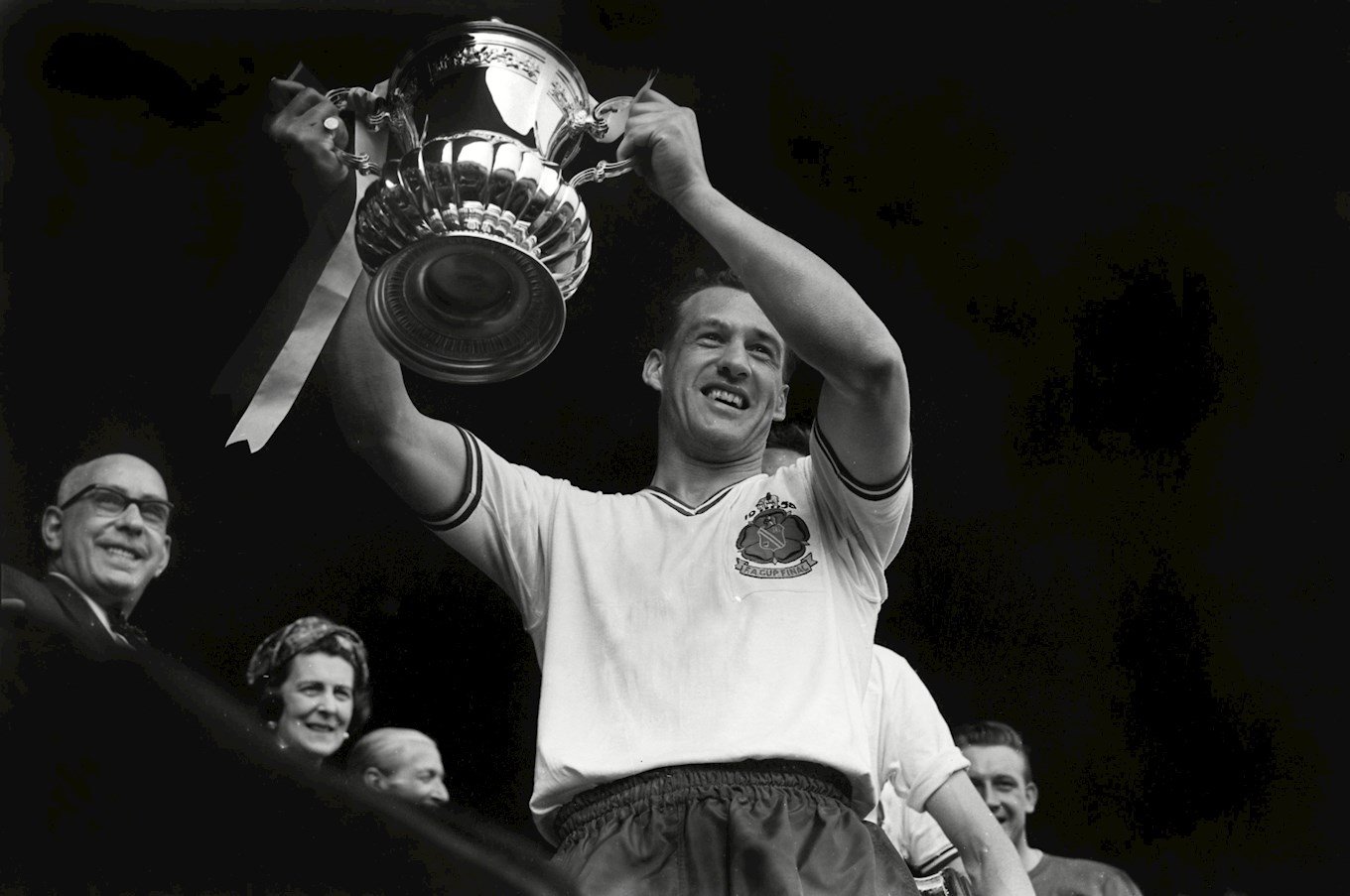In this brand new feature, Paul Holliday profiles footballers who were born in the borough of Bolton and went on to wear the famous white shirt. And where better to start than the most famous Wanderer of them all: Nat Lofthouse OBE.
During the summer, Bolton Wanderers Football Club and our Community Trust launched a new initiative that pervades throughout the club, community and town: One Club, One Community, One Town.
This ethos was designed to celebrate and recognise the past, present and future for the people of Bolton, the fans of Wanderers and our wonderful and proud town, and to create a unifying spirit among all its constituent parts.
If one Wanderers player could embody this mantra it would be Nat Lofthouse, the one-club man who was a supporter, player, manager and employee of the Trotters throughout his life.
From the moment he first watched his heroes play at Burnden Park as a youngster, Nat only ever wanted to follow in their footsteps and represent his hometown club.
And at the outbreak of World War Two, he signed for Wanderers on 4 September 1939 as 14 year-old apprentice.
The war disrupted the league structure but that didn’t stop football from taking place. Wartime football emerged and this afforded Nat the opportunity to make his debut for the club in a 5-1 win against Bury in 1941 where he scored two goals!
Conscription temporarily took him away from Burnden Park and he contributed to the national war effort by working at Mosley Common as a Bevin Boy.
He had to wait until 1946 before making his official league debut when he scored twice in a 4-3 defeat against Chelsea.
Throughout his career with Wanderers he scored a phenomenal 255 league goals between 1946 and 1960 – a record that still stands at the club. He netted both goals in the 1958 FA Cup Final against Manchester United as Wanderers made amends for their 4-3 defeat against Blackpool at Wembley five years earlier. It was Wanderers’ fourth FA Cup honour following a troika of trophies in the 1920s.
Naturally, such a talent was recognised at international level and Nat was selected to play for his country in 1950 at the age of 25. Unsurprisingly for Wanderers fans at the time, Nat scored on his debut – two goals in a draw against Yugoslavia at Highbury.
In 1952, Nat earned the sobriquet that cemented him into eternal football folklore and epitomised his Boltonian upbringing. In scoring his second goal – which proved to be the winner - in a 3-2 victory over Austria, Nat was elbowed in the face and tackled from behind. As he slipped the ball past the advancing Austrian goalkeeper he was knocked out cold. From there on, the legend of the Lion of Vienna was born.
In total, he scored a remarkable 30 goals in just 33 appearances for England and played his final game for his country on 1958 at the age of 33.
An ankle injury forced him to call time on his playing career in 1960 but his love for Wanderers never waned.
Post retirement, Nat served as an assistant trainer, chief coach, caretaker manager twice, manager and chief scout. Away from the football side of the business he served the club as the Executive Club Manager before becoming President in 1986.
Nat passed away in 2011 as the club, community and town mourned the death of its most famous son.
His name however will always live on in the history of Bolton Wanderers Football Club.

